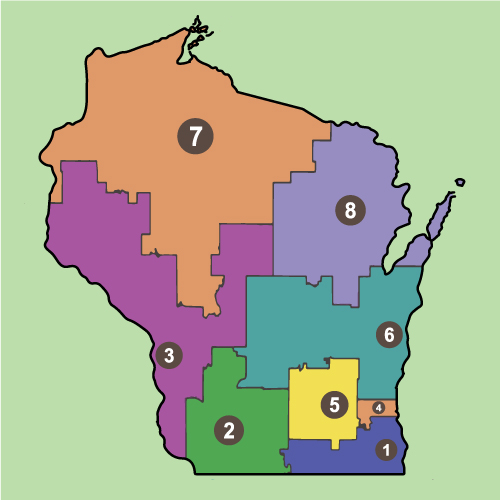The recent leak of a controversial memo on drone use from the Department of Justice’s Office of Legal Counsel has raised questions about the Constitution and governmental balance of power.
The memo outlines a controversial drone policy allowing U.S. officials to target and kill U.S. citizens abroad if they are thought to be allied with al-Qaida. This contentious ruling has revived the debate among legal and political officials about the use of targeted violence.
The 2010 memo was used to justify the killing of an American-born al-Qaida affiliated cleric in a CIA drone strike in September 2011, the New York Times reported Feb. 6. Congress demanded access to the document, saying the president had no right to hide such vital information.
The debate surrounds the question of whether it is considered constitutional to use targeted drone strikes to kill U.S. citizens. Steven Biskupic, a Marquette adjunct professor of law, said these drone strikes could work within the framework of the Constitution.
“The Department of Justice white paper contends that the president has the authority to direct lethal action, including targeted killings of U.S. citizens (via drones),” Biskupic said, “provided that the target is associated with al-Qaida and poses an imminent threat of violent attack against the United States.”
The killing of U.S. citizens is meant to be a last resort, according to the memo. Biskupic said “other conditions must be met as well, including that capture (instead of killing) is not feasible.”
According to a Huffington Post/YouGov poll from Feb. 11 and 12, 56 percent of Americans agree with the targeting and killing of high-level terrorists with drones, 13 percent say anyone under suspicion of being affiliated with a terrorist group should be targeted and 13 percent say the drone program should not be used to kill anyone.
In a Feb. 5 press conference, White House Press Secretary Jay Carney defended the legality of the drones policy and outlined reasons for its existence.
“We have acknowledged, in the United States, that sometimes we use remotely piloted aircraft to conduct targeted strikes against specific al-Qaida terrorists in order to prevent attacks on the United States and to save American lives,” said Carney. “We conduct those strikes because they are necessary to mitigate ongoing actual threats, to stop plots, prevent future attacks, and, again, save American lives.”
Biskupic said this need to protect American lives falls under the president’s right to protect the nation (Article II of the Constitution) as well as “the right of self-defense recognized by international law.”
Some argue that this policy gives certain people too much power.
“Those critical of the white paper contend, in part, that the constitutional and self-defense powers are normally confined to enemy combatants on the battlefield,” Biskupic said. “The white paper analysis allows the government to send a drone attack against any such person in any foreign place where ‘active hostilities’ are taking place. In the view of critics, this unilateral, open-ended grant of power is contrary to a constitution founded on limited powers and checks and balances between the branches of the government.”
There is also the question of how much protection U.S. citizenship grants.
The American Civil Liberties Union said on its website that, “outside of armed conflict zones, the use of lethal force is strictly limited by international law and, when it comes to U.S. citizens, the Constitution.”
The ACLU also implied that such strikes infringe upon citizens’ rights to due process.
“The CIA and the military are carrying out an illegal ‘targeted killing’ program in which people far from any battlefield are determined to be enemies of the state and killed without charge or trial,” the website read.
However, Biskupic said, depending on the situation, drone strike targets may not need to be afforded those rights.
“The legal rights of U.S. citizens, including due process, are not absolute and often depend on the circumstances,” said Biskupic. “Most legal scholars point out that the constitution does not give a U.S. citizen the right to take up arms against the United States and fight alongside a declared enemy.”
Carney also cited previous judicial rulings to justify the drone strikes.
“Under generations-old legal principles and Supreme Court decisions, U.S. citizenship alone does not make a leader of an enemy force immune from being targeted,” Carney said.
Despite the arguments this drone policy has started, Biskupic said he does not believe that the answer will be found in the courts.
“The primary check is likely Congress, not the courts,” Biskupic said. “If Congress disagrees with the particular manner in which the president is carrying out that responsibility, such as with the drone policy, then Congress has various powers that can check the president. The primary method is through control of the purse strings – Congress could simply refuse to fund any military operations involving drones.”




